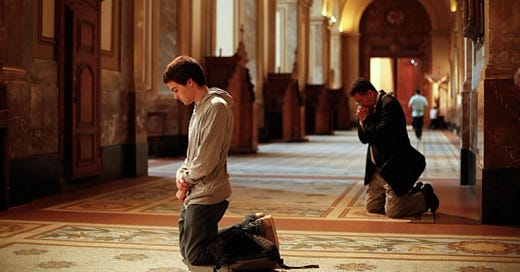Why is Gen Z turning to faith - especially Catholicism?
... and is the media biased against Christians and conservatives?
I’m having a great Lent - though my request to God to rid me of pride has led to an increasing number of opportunities to practice humility, which I might amuse you with in the future. But this article isn’t going to help - the past week has been full of reports of an increase in churchgoing in young adults - and you saw it here first! Without too many stats to go on at the time, in October I reported on signs that there is an increase in interest in traditional values and Christianity in 18-25 year olds.
Now we have some hard stats. A report from the Bible Society says that young adults are increasingly attending church - they are now the second most frequent attenders after those of pensionable age. One of the conclusions is that the new converts are especially drawn to Catholicism - with twice as many attending Catholic Churches as Anglican Churches in Gen Z.
I wasn’t asked to write about that report, but it was released just after I filed an article for Catholic News Agency on a surge in conversions this Easter, especially in young men, first attracted via the internet and then drawn to its traditions and heritage.
As you can read in the article, up and down the country, people are saying ‘there’s something happening’. Young people are randomly turning up in ordinary parishes and asking for instruction. This week another article I researched will be published on a similar rise in numbers in France - though the trend is stronger in young women there.
I will be discussing these trends, and Catholicism, more in coming weeks - watch this space.
Interview with former BBC journalist Robin Aitken
As part of my research into the question of why the media does not cover stories of persecution of Christians for my recent Premier article, I interviewed former BBC journalist Robin Aitken, who had some interesting thoughts on the subject. The interview is out on Christian Today, describing the well-meaning intentions but ingrained biases that many journalists hold, and how it affects their work. As I was one of those secular journalists before my conversion, what he says does chime with my own experience and my own opinions and biases in days gone by.




